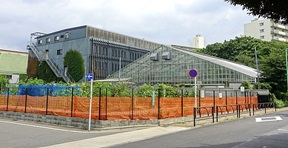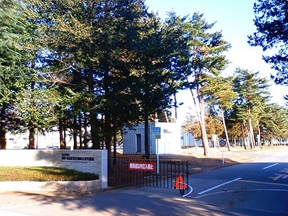People must eat. The vast majority of what we eat originates from agriculture. But this produces roughly one quarter of global greenhouse emissions. Can we avoid that? Produce synthetic food that comes with much less environmental problems? And if so, what would be the side effects?

Synthetic food?
Researchers led by a team of the University of California, Irvine, made calculations on this question. Published in Nature Sustainability. They concentrated on the food component that is most readily produced industrially: fat. Can we produce fats chemically and biologically without agriculture? From the same components that plants use for this synthesis, water and carbon dioxide?
The simple answer to this question is yes. ‘It is a very real possibility,’ says UCI’s project leader Steven Davis. ‘It could avoid enormous quantities of climate-warming emissions while also safeguarding biodiverse lands that might otherwise be cleared for farms.’ And there would be more environmental benefits. Including ‘a reduction in water use and watershed pollution, local control over food production, diminished risk of weather-related food shortages, and less need for low-paying and physically demanding agricultural labour.’ We could also return existing farmlands to a natural state. This could enhance biodiversity and build up natural carbon sinks.

Will people accept it?
There is one major question that looms over all such ideas: will people accept food that contains artificial fats? In view of the fact that ‘artificial food’ may have a very negative connotation. But there is a real possibility that this will not be a problem. Primarily because so much fat in our diets is invisible anyway, coming from industrial sources. Products like cookies, crackers, snack chips are made with palm oil. Will people accept a substitute for this? Maybe most people wouldn’t notice, if the oil used to bake their cookies came from a food refinery. At the moment, most of them are not aware that the oil may come from a plantation in Indonesia.
Using synthetic fats for such purposes will be important for carbon dioxide emissions. Agriculturally derived fats, the researchers estimate, correspond to roughly 1 to 3 grams of emitted CO2 per thousand calories. Using molecularly identical fats synthesized from natural gas feedstock would correspond to less than a gram of CO2 equivalent emissions. And we could even do much better than that, for instance if we would heat chemical reactions with solar energy.
Fats are unique
So far for fats. They are unique in our dietary system because we can synthesize them with processes that don’t involve biology. We can apply higher temperatures and pressures and in doing so, arrive at good efficiencies. It is not likely that many people will oppose such a project. ‘Few people care where the electrons in our wall socket originate,’ says Davis, ‘but many people care a lot about where their food comes from. Processed foods are thus a likely use for synthetic fats. Folks may be less concerned about what kind of fat is in a store-bought cookie or pie crust because they don’t know what’s in there right now.’
Synthesizing carbohydrates and proteins however, the other main components in our food, will be a completely different matter. Let alone all the important micro components that we need as well. In other words: we will still need agriculture to provide our food. Synthesizing fats may be good for the climate effect. But chemistry will not solve the environmental effect of our food system as a whole.
Interesting? Then also read:
Biotechnologically produced food: positioning and profit margin
Genetically modified food
Synthetic food?
